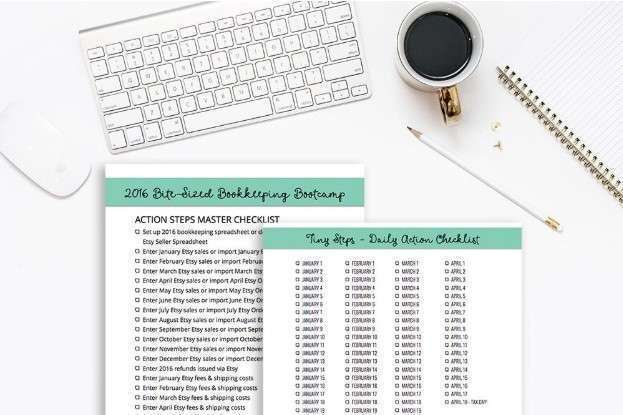
They assist with tax preparation, cost analysis, auditing, cpa vs accountant and financial planning. Typically, an accountant holds a bachelor’s degree in accounting or a related field and may work in various industries, providing essential financial oversight. An accountant manages day-to-day financial transactions, like bookkeeping and basic tax preparation.
- After reading the information above, it’s apparent that there are several key differences when it comes to a CPA vs. accountant.
- The CPA credential is primarily recognized in the U.S., but international opportunities exist through partnerships with global accounting organizations.
- The agency tasked with tracking employment and salary data in the U.S. is the U.S.
- If confidentiality is a primary concern, particularly in cases of potential tax fraud or disputes with the IRS, a tax attorney provides a significant advantage.
- If you plan to work as an accountant within a private company, such as a small or medium sized corporation, becoming a CPA may not be a job requirement.
- Accountants are often responsible for evaluating a business’ overall financial operations and providing guidance to help the business make well-informed financial decisions.
Accountant vs. CPA Educational Paths and Requirements
In simple terms, the main difference lies in what accountants and CPAs are legally allowed to do. CPAs can do everything an accountant can and more, including tasks that have significant legal implications, like audits. While both accountants and CPAs (Certified Public Accountants) work with financial statements, the distinction lies in a CPA’s licensure, which grants higher responsibilities. In contrast, the role of a CPA is to adhere to strict ethical principles set by the AICPA, covering integrity, public interest, objectivity, and due care. These guidelines ensure that CPAs deliver unbiased, high-quality services and keep up with ongoing education requirements. You will need an accountant to maintain financial records, manage payments, and plan your taxes.
Licensure, education, and training
When hiring a CPA, it’s essential to find someone who has the right qualifications, experience, and expertise for your specific needs. Start by verifying their credentials to ensure they are licensed and have passed the CPA exam. It’s also important to check that they are in good standing with the state board of accountancy, as this confirms they are up-to-date on professional standards and continuing education requirements. For general financial management and tax preparation, a skilled accountant might suffice.

What Exactly Are Accountants and CPAs?
To succeed in any corporate environment, accountants must have a variety of skills. After receiving a bachelor’s degree, they need to ensure that they are prepared to handle financial data management, advice and analysis, reporting compliance, and financial report Certified Bookkeeper preparation. To become an accountant, a bachelor’s degree in finance, business management, accounting, or a related field is required. An accountant’s job training generally begins with a school-based internship program and on-the-job training. In some states, the requirements include being a United States citizen, a resident of the state, or both in order to take the exam.
- To become a Certified Public Accountant (CPA), you need to complete educational requirements, work in the accounting field, and pass the CPA Exam.
- In the assurance service category, only a CPA can prepare an audited financial statement or a reviewed financial statement, although any accountant can prepare a compiled financial statement.
- Not all accountants are CPAs (certified public accountants), but all CPAs are in the accounting profession.
- Simply put, they’re accountants who are licensed to handle more regulatory tasks.
- Another distinction is that accountants who are not CPAs would not be able to represent their clients in matters relating to IRS audits.
CPA applicants must complete 150 hours of university coursework, including specific hours in upper-level accounting, auditing, and business core courses. If you’re a business owner, look for a CPA who has experience working with businesses of your size and industry. For personal tax services, seek someone who is familiar with your unique tax situation, whether that involves investments, real estate, or self-employment.
To maintain a CPA license, CPAs must complete continuing education classes every year to keep their license. All states require the equivalent of 40 hours of CPE every year, but some states have flexible requirements. For example, Alaska requires CPAs to get 80 hours of CPE every two years, at least 20 hours per year. A CPA is a licensed accountant who has met state-specific education and experience requirements, passed the CPA exam, and adheres to a code of ethics. A private accountant, on the other hand, may not hold a CPA license and may work in a variety of industries or for an individual or organization.


Some employers may also only consider applicants who have gone on to earn their master’s degree in accounting. Graduates with at least a bachelor’s degree program may also choose to pursue certifications in areas like government accounting or management accounting. Michelle Payne has 15 years of experience as a Certified Public Accountant with a strong background in audit, tax, and consulting services. She has more than five years of experience working with non-profit organizations in a finance capacity.

What Is a Business Administration Degree: Career Versatility & Transferable Skills

Both CPAs and chartered accountants provide advanced accounting services such how is sales tax calculated as auditing financial statements, filing corporate taxes, and offering financial guidance. Chartered accountants facilitate strategic financial growth and influence fiscal decisions both domestically and internationally. Accountants play a vital role in financial management for both individuals and organizations.
Small Business Tax Strategies
AICPA notes that CPAs might work in public accounting in audit, tax and management consulting areas. CPAs can also explore business and industry employment, working in areas like financial accounting and reporting, management accounting, financial analysis and treasury management. CPAs also have the option of providing specialized services like financial forensics, business valuation, personal financial planning and IT consulting. The CPA designation in the United States requires candidates to meet the “150-hour rule,” often equating to a master’s degree in accounting or a related field. Candidates must pass the Uniform CPA Examination, which tests auditing, financial accounting, and regulation. Licensing requirements vary by state and often include work experience under a licensed CPA.
